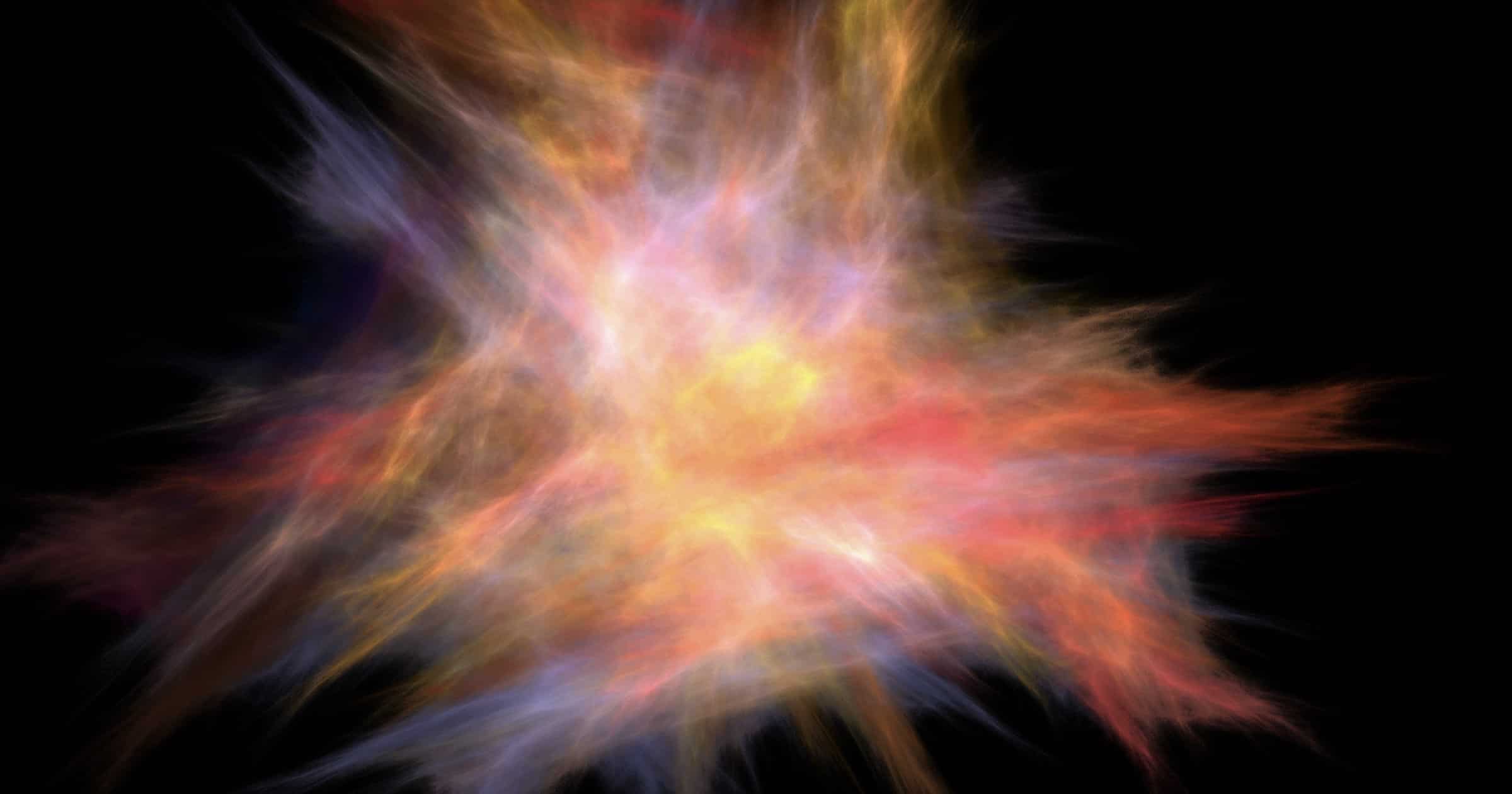Physicist Brian Miller writes:
Theoretical physicist Sabine Hossenfelder recently posted a very informative video asking “Did the Big Bang happen?” She explains why alternative theories to the Big Bang model fail to better explain the cosmological data. She also unintentionally affirms the fine-tuning argument for design in the universe.

Success of the Big Bang Theory
Hossenfelder begins by summarizing the evidence for Big Bang cosmology based on Einstein’s theory of relativity and the observed expansion of space. She also explains why the exact details of the early universe remain a mystery. Cosmologists have a limited understanding of the physics of this time when the energy of particles exceeded what the Large Hadron Collider at CERN could generate. In addition, elucidating the dynamics of the universe’s earliest epoch requires a theory of quantum gravity, which does not currently exist.
Even given these limitations, the Big Bang theory represents the best model since it is founded on general relativity, and Einstein’s theory is supported by numerous pieces of observational evidence such as the bending of light around stars. In addition, the standard model (i.e., Big Bang model with a cosmological constant and cold dark matter) predicts many observations such as the Cosmic Microwave Background and the galactic filaments using simple initial conditions. The universe’s initial state is assumed to approximate a uniform distribution of mass-energy.
The standard model thus provides a “simple” explanation for the current state of the universe since it requires few variables. These include the variables in the relatively simple equations for the expansion of the universe, the initial mass-energy density, and the initial expansion rate.
Deficiency of Other Models
Hossenfelder then provides a deeply insightful exposition on the inferiority of other models. All other models rely on different equations for the dynamics of the early universe. But these equations can only generate our current state by choosing far more complex initial conditions:
…Einstein’s equations together with their initial values in the early universe provide a simple explanation for the observations we make today. When I say simple, I mean simple in a quantitative way you need few numbers to specify. If you used a different equation, then the initial state would be more difficult. You’d need to put in more numbers. And the theory wouldn’t explain as much.
The key problem is that nearly any set of equations could yield the current state of the universe with the right choice of initial conditions. But neither the theory’s underlying equations nor the initial conditions can be independently verified. And the alternative theories provide no additional knowledge. Hossenfelder summarizes as follows:
And then they also need a different initial state, so you might no longer find a Big Bang. As I said earlier, you can always do this, because for any evolution law there will be some initial state that will give you the right prediction for today. The problem is that this makes a simple explanation more complicated, so these theories are not scientifically justifiable. They don’t improve the explanatory power of the standard cosmological model. Another way to put it is that all those complicated ideas for how the universe began are unnecessary to explain what we observe.
The God Hypothesis
Hossenfelder lists several theories that fall under her critique including Penrose’s cyclic cosmology, the ekpyrotic universe that postulates colliding membranes, and the no-boundary proposal by Jim Hartle and Stephen Hawking. Stephen Meyer also critiqued these theories in his book Return of the God Hypothesis. But Meyer came to starkly different conclusions.
Hossenfelder concludes that “we are facing the limits of science itself.” And the question of the universe’s origin “we’ll never be able to answer.” In contrast, Meyer argues that the evidence for a beginning and the required fine tuning of the universe to support life point to a mind behind our world. The fact that all alternative cosmological theories require highly specific initial conditions to explain our present life-friendly universe only reinforces the fine-tuning argument and by extension the God Hypothesis.
Evolution News
The conclusion, “we are facing the limits of science itself,” is supportive of the thesis derived from scientific evidence presented in my book, Canceled Science, the idea that there are “boundaries of science”. We observe phenomena in this universe that are beyond the known constraints imposed by the laws of nature, implying that natural explanations are insufficient to explain their existence. The origin of this universe is one of those observed realities that transcend the abilities of nature. But it’s not the only one. The knife-edge fine-tuning of the laws and parameters of physics to support life, the origin of life on Earth, the multiplicity of finely-tuned conditions on Earth that allow millions of species to thrive, the origin of consciousness, the human mind, our sense of morality, and others all point beyond nature to a transcendent origin – what Meyer calls the God Hypothesis.